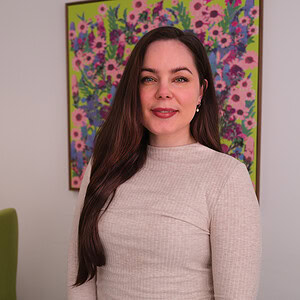Mind
January is typically a time when many of us feel overdue for a life review; whether it be to improve our eating habits, cut down on the booze, become more active or change our lifestyle in general. Yet many New Year’s resolutions will be long forgotten by the time February arrives.
According to research from the University of Plymouth and Queensland University in Australia, however, using our imaginations to visualise how we want to be — whatever our goal — could make all the difference.
In a study specifically looking at weight-loss, it was found that overweight people who used a motivational intervention called Functional Imagery Training (FIT) lost an average of five times more weight than those using talking therapy (Motivational Interviewing (MI)) alone.
In addition, FIT users lost 4.3 cm (nearly two inches) more around their waist circumference in six months and continued to lose weight after the intervention had finished.
What is Functional Imagery Training (FIT)?
Whilst MI involves working with a counsellor to develop, highlight and verbalise the need or motivation for change, FIT makes use of multi-sensory imagery to explore these changes by teaching clients how to elicit and practise motivational imagery themselves. The idea is to use imagery practice until it becomes a cognitive habit.
ION asked lead researcher Dr Linda Solbrig from the School of Psychology at the University of Plymouth about FIT and how we could try it out for ourselves.
Weight-loss is often for a short-term goal, after which people usually regain the weight. How might FIT help people avoid yoyo dieting?
“Individuals trying to manage their weight often find that motivation fades over time, and that this is the hardest part about maintaining a healthy weight. If, for example, people choose to go on a low calorie diet to look good in their holiday snaps, they might soon realise that this way of approaching weight-loss was too restrictive; perhaps they soon give up or lapse slowly into old habits, regaining weight they fought so hard to lose. This is demotivating and crushes confidence in being able to crack this successfully in the future… it is not the short-term goal we pick that is the issue, but more so how we go about achieving this goal.
“Our FIT participants will often say FIT is a mindset change — not a diet technique — but a tool everyone can apply whenever they need to build motivation and confidence. It is all about drawing focused attention in the form of mental imagery…
“Participants learn to generate mental images about their self-chosen goals, steps towards achieving them and goal successes, using all their senses, imagining how they will feel, where they will be, what they can smell and hear around them — creating a mini movie of themselves as lead actors.
“They also practise overcoming barriers to working on their goals and identify and imagine using strategies that have worked for them in the past. The desired end goal now becomes more within reach, via clear, realisable steps, because imagined scenarios allow for a real-life emulation of a clear path to achieving a desired outcome.
“FIT supports whatever method of weight loss works for the individual; it is not prescriptive and helps them to stay motivated, especially during times when progress naturally slows down, or when we lapse a little. Although getting out and about during autumn and winter daytime is a positive step, cloudy days still may not provide enough light for some.”
How can you access FIT therapy?
“Although we have trained some practitioners in basic FIT techniques, FIT is not yet widely known because it is still very new. We have funding from the University of Plymouth to deliver subsidised training workshops for practitioners, to speed up the roll out of FIT in the UK. When this is done, we shall set up a database of licensed FIT practitioners so people can find one close by.
“We have created a free app that delivers a version of FIT. ‘Fitz’ guides users through setting goals and practising functional imagery. It is available through the Google Play store (look for the blue and white robot logo) and for iOS.”
What would be your advice to New Year resolution dieters?
“Very few people achieve their New Year’s resolutions. Part of the problem is that people are generally bad at predicting how they will feel about their resolutions and attached goals in the future, especially when making them around the holidays. This is a time where we most likely relax with friends and family, far removed from the daily pressures of ‘regular life’.
“Another part of the problem is that temptations are always lurking, so the firm decision to change a behaviour, like making changes to the way we eat, is not only required on 1 January but must be made repeatedly in the days and weeks that follow.
“People commonly underestimate the strength of the future cravings and desires that could derail their resolution to change. When we make our New Year resolutions it’s likely that we won’t be craving the sugary food or alcohol that we plan to give up — especially if we have recently overindulged. Not knowing how we might feel about our resolution — once we go back to our jobs or busy family lives — and underestimating the power of unhealthy desires can lead to a lot of potential pitfalls.”
More tips for achieving your goals in 2021
- Start by making that resolution. It is not a waste of time! You are 10 times more likely to achieve your goal if you make a resolution than if you do not.
- Make it about what you want to achieve today, and for the rest of this month.
- Garner social support and strengthen your commitment by telling everyone what you plan to do. Splash it across social media!
- Then, sit down and spend a few minutes imagining, as vividly as you can, what you will do today to get started on your plan, what you will do next, and how good it will feel to succeed each day.
- If you know that some changes or challenging situations are coming up that might interfere with your goal, practise overcoming those and succeeding after all in your imagination.
- If you need ideas of how to get started with working on your goal, think back to times when you have had success — or even partial success — at this or something similar, and see if any of the strategies/ideas you used then could help you now. Then, imagine using that idea to help you get closer to your goal.
If you enjoyed this article, you might also like reading about the science of gratitude






